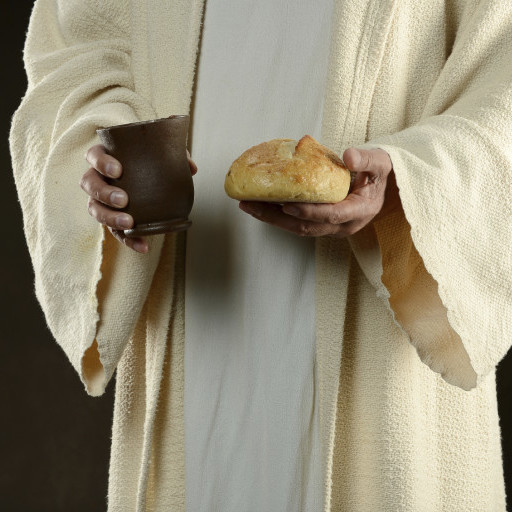What are our debts, sins, wrongs, doing wrong, shortcomings and trespasses?[i] In ancient Hebrew, “to sin” meant to wander off the path God has ordained for us, the straight and narrow path back to Him. There are several words in Hebrew describing different aspects of sin: “chata” which means to fall short, miss the mark in shooting an arrow, “shagag” which means to wander, stray or meander off of the path, and “avon” which means open rebellion against God, pure iniquity, doing wickedly.[ii]
In the Greek New Testament, Matthew and Luke use different words for debt. Matthew’s word for debt/sin is opheilēmata[iii] which means something owed, legally due, debt or offence and sin.[iv] This word is used only twice in New Testament for sin. Looking at Luke in Greek, the word for sin is “Hamartia“which is used 39 out of 42 times for the English word sin.[v] Hamartia has similar meanings to “shagag” in Hebrew. It can mean “to miss the mark”, “to err”, to “be mistaken, to miss or wander from the path of uprightness and honor, to do or go wrong, to wander from the law of God, violate God’s law, sin”, or to give offense.[vi]
For most of us common sinners, we are wandering off the straight and narrow. Hopefully we won’t go on to open rebellion against God, which can still be forgiven but we and others suffer more during the rebellion. Our modern concepts of sin seem to trace back to the early American Divines who preached how utterly evil and depraved we as common men and women are as we go to hell. The ancient Hebrews and Christians had a more charitable view of humankind as being the offspring of God prone to wander and get lost like little children, in constant need of being gently led back with a shepherd’s crook or carried back to the flock on God’s shoulders.[vii] Hell was also mistranslated and misunderstood by them. All spirits go to the spirit world after death. This place for nearly every usage in the New Testament is called Hades, the Greek translation of Hebrew Sheol used in the Old Testament for the place all go when departing mortal life. There is little if any relation to afterlife rewards or punishments. So our concept of Hell is not Biblical in the Old and New Testaments.[viii]There is no mean God with a stick beating us in a hellish existence for all time and eternity. This is a fake god invented by the wild imaginations of men. God is ever caring and kind, ever forgiving, ever patient and merciful, ever encouraging and covering up our mistakes and waywardness with the atonement of Jesus Christ.
The emphasis on debts also is charitable. When one owes a debt, it can be paid off at some point in the future. Either we or some merciful benefactor can pay it off for us. When we owe too much as in the parable of The Unforgiving Debtor[ix] who owed more than a billion dollars in today’s money, we need a powerful king to pay it off for us. For there is no possible way on a common salary to pay it off even with 1000 lifetimes of earnings.
Jesus likens God, the Father, to the king in the parable who forgave a debt of a billion dollars from someone who pleaded for mercy, who did not deserve mercy for making such bad financial decisions. This overemphasis on forgiveness even when the debt or wandering is excessive or an act of deliberate open rebellion, shows just how merciful God is to the truly penitent who forsake their sins and return to the straight and narrow path.
As we pray for forgiveness, modern revelation tells us that Jesus is pleading with the Father for our forgiveness:
“Listen to him who is the advocate with the Father, who is pleading your cause before him—Saying: Father, behold the sufferings and death of him who did no sin, in whom thou wast well pleased; behold the blood of thy Son which was shed, the blood of him whom thou gavest that thyself might be glorified; Wherefore, Father, spare these my brethren that believe on my name, that they may come unto me and have everlasting life.”[x]
This is the touching scene we will see at the Great and Last Day, the Final Judgment where the Savior of all of us is paying off our wandering debt to the Father in full by the fullness of his divine suffering in Gethsemane and the cross of death.
[i] https://biblehub.com/matthew/6-12.htm
http://www.centerplace.org/hs/iv/iv-mat.htm
[ii] http://kingjamesbibledictionary.com/StrongsNo/H2403/sin chaṭṭâʼâh
https://www.bibletools.org/index.cfm/fuseaction/Lexicon.show/ID/H7683/shagag.htm shagag
http://kingjamesbibledictionary.com/StrongsNo/H5771/iniquity ʻâvôn
[iii] https://biblehub.com/greek/opheile_mata_3783.htm
[iv] https://hermeneutics.stackexchange.com/questions/87/forgive-us-our-debts-sins-trespasses-which-is-the-most-accurate-transla
[v] https://bible.org/article/thirty-three-words-sin-new-testament-part-1
[vi] https://www.biblestudytools.com/lexicons/greek/nas/hamartia.html
[vii] Ezekiel 34:6-13
[viii] https://en.wikipedia.org/wiki/Christian_views_on_Hades
Fred B. Pearson, ThD “Sheol and Hades in Old and New Testament” accessed at https://journals.sagepub.com/doi/abs/10.1177/003463733803500304?journalCode=raeb on May 11, 2021
[ix] Matthew 18:22-35 King James Version
[x] D&C 45:3-5

